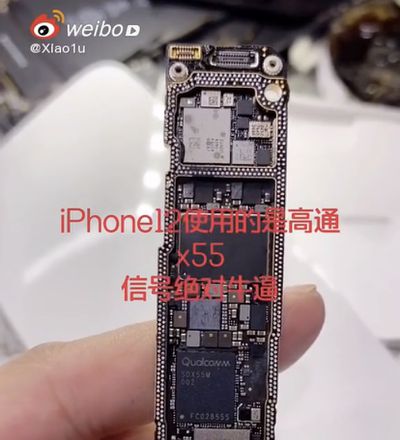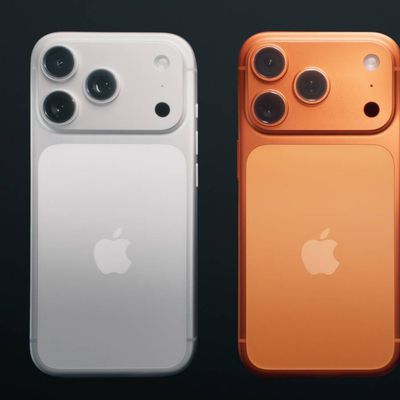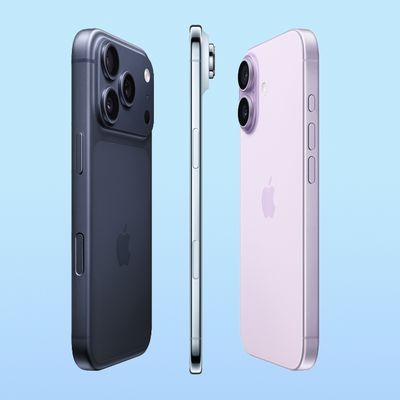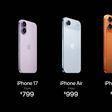iPhone 12 Models Use Qualcomm's X55 Modem
Apple's iPhone 12 lineup appears to be equipped with Qualcomm's Snapdragon X55 modem, which is in line with rumors that we heard about the new devices prior to their launch.

An iPhone 12 teardown video on Chinese social networking site Weibo gives a close look at the L-shaped logic board and the modem chip.
The X55 offers support for both 5G mmWave networks and 5G Sub-6GHz networks, along with 5G/4G spectrum sharing, and it is Qualcomm's second-generation 5G chip after the X50.
Reports in 2019 indicated Apple would use the X55 modem in its iPhone 12 lineup, and at the time, the X55 was Qualcomm's fastest and newest 5G modem. Qualcomm in February 2020 introduced the X60 modem built on a 5-nanometer process, which is more power efficient than the 7-nanometer X55.
There was some speculation that Apple could adopt the X60 for the iPhone 12 lineup, but the X60 likely came out too late in the iPhone 12 development process to be considered for the new devices.
Next year's iPhones will likely use the Snapdragon X60 modem from Qualcomm, which is the third-generation 5G modem chip that Qualcomm has manufactured. It will bring notable performance improvements in terms of battery draw, component size, and connectivity speed because it offers carrier aggregation for combined mmWave and sub-6GHz networks.
Apple used Intel chips for the iPhone 11 lineup, but switched back to Qualcomm's technology for this year's lineup after it became clear that Intel would not be able to provide the 5G modem chip capabilities Apple needed for its devices. Apple settled a long-running legal battle with Qualcomm to get access to Qualcomm's chip technology.
Popular Stories
Apple today introduced the iPhone 17 Pro and iPhone 17 Pro Max.
Both devices feature a new aluminum unibody design, with the Ceramic Shield now protecting both the front and back sides. Apple says the front side is now Ceramic Shield 2, which offers 3x better scratch resistance, while the rear Ceramic Shield is advertised as 4x more resistant to cracks compared to the back glass on previous...
Apple continues to phase out the physical SIM card tray on iPhones, with the latest models relying solely on eSIM technology in more countries.
The new iPhone 17, iPhone 17 Pro, and iPhone 17 Pro Max support eSIMs only in these countries and regions, according to Apple:
Bahrain
Canada
Guam
Japan
Kuwait
Mexico
Oman
Qatar
Saudi Arabia
United Arab Emirates
Un...
Apple's new Live Translation feature for AirPods will be off-limits to millions of European users when it arrives next week, with strict EU regulations likely holding back its rollout.
Apple says on its feature availability webpage that "Apple Intelligence: Live Translation with AirPods" won't be available if both the user is physically in the EU and their Apple Account region is in the EU....
Apple held its annual iPhone event on Tuesday, September 9, to unveil the iPhone 17, ultra-thin iPhone Air, iPhone 17 Pro, and iPhone 17 Pro Max.
All of the new iPhone models will be available to pre-order starting Friday, September 12 at 5 a.m. Pacific Time / 8 a.m. Eastern Time in the U.S. and dozens of other countries, according to Apple. The release date for the devices is one week...
While the iPhone 18 Pro and iPhone 18 Pro Max are still a year away, there are already a few rumors about the devices that offer an early look ahead.
If you are skipping the iPhone 17 Pro and want to know about what to expect from the iPhone 18 Pro models, we have recapped a few of the key rumors below.
Under-Screen Face ID
In April 2023, display industry analyst Ross Young shared a...
Apple has confirmed the battery capacities for the iPhone 17, iPhone Air, iPhone 17 Pro, and iPhone 17 Pro Max models that were announced earlier today.
Apple is required to publish energy labels on its iPhone product pages in the EU, and they reveal the official mAh battery capacities for the devices.
Here are the battery capacities for each model, according to Apple:
iPhone 17:...
The first benchmark results for the A19 Pro chip in the iPhone 17 Pro, iPhone 17 Pro Max, and iPhone Air surfaced in the Geekbench 6 database today.
Based on these early results — which are unconfirmed — the A19 Pro chip across the Pro models and the iPhone Air appears to deliver up to 13% to 15% faster multi-core CPU performance compared to the A18 Pro chip in the iPhone 16 Pro...



















